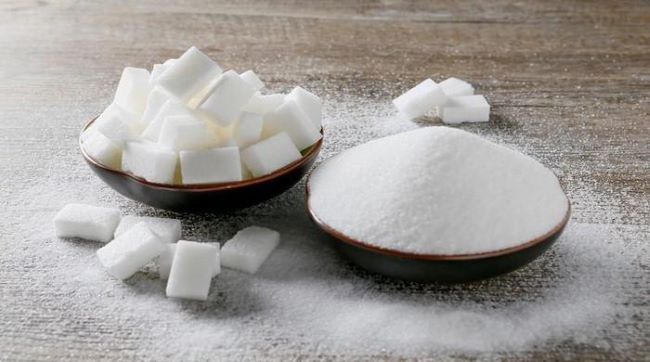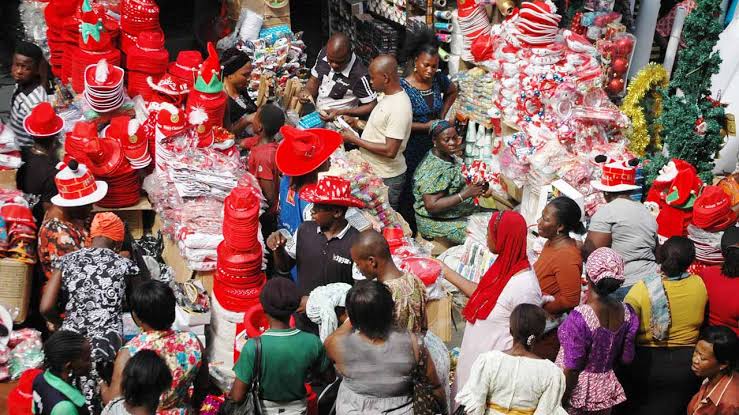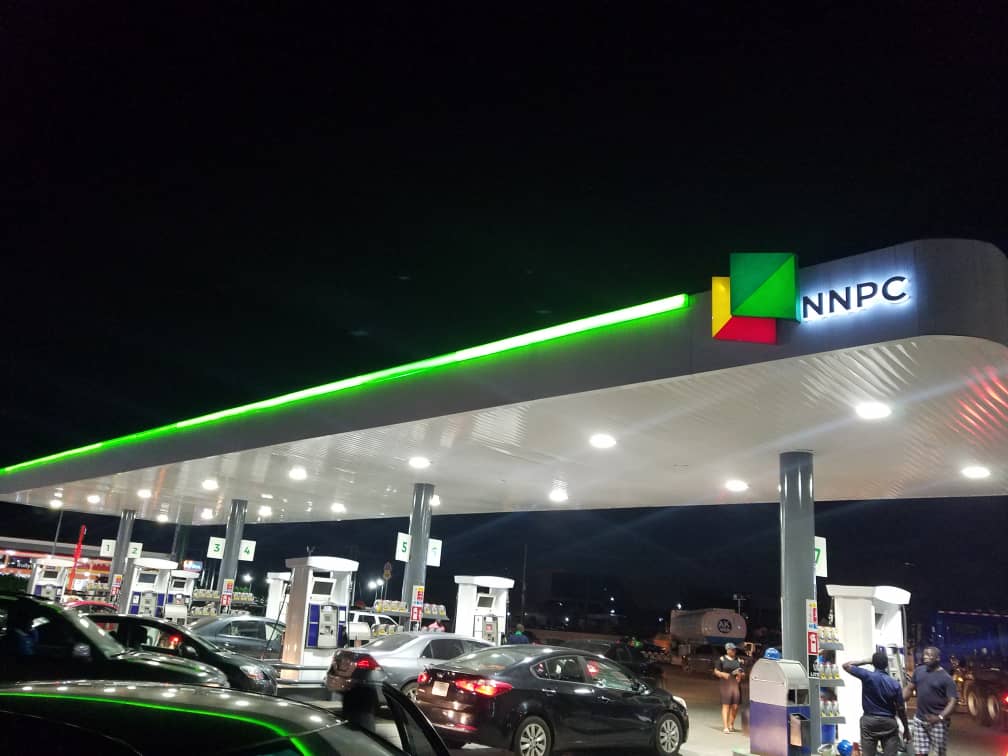Business
FCCPC warns of substandard sugar brands circulating in Nigerian markets

The Federal Competition and Consumer Protection Commission (FCCPC) says it has uncovered the availability of substandard and unregistered sugar products in Nigerian markets.
The FCCPC said the products include smuggled brands from Brazil such as Grupo Moreno, Terous, USI S. Joao, Alvean, and Arapora Bionergia.
In a statement on Wednesday, Ondaje Ijagwu, director of corporate affairs at FCCPC, said the products, which failed to meet mandatory Vitamin A fortification requirements, pose serious health risks to consumers.
Ijagwu said the substandard products undermine the integrity of the local sugar industry and contribute to price manipulation that harms the market.
“Acting on a tip-off, FCCPC operatives conducted discreet investigations across the country, particularly in the South-West and the North-East,” the statement reads.
“The investigations revealed that many of the identified sugar products lacked normal labeling, including production and expiry dates, batch numbers, and the mandatory National Agency for Food and Drug Administration and Control (NAFDAC) registration.
“Even more concerning, most of the products were not fortified with Vitamin A, a critical nutrient essential for good vision, immune health, and overall well-being.
“The absence of this fortification exposes Nigerian consumers to serious health risks, including blindness and increased susceptibility to infections, particularly among vulnerable groups such as children and pregnant women.
“The FCCPC is also deeply concerned about the economic impact of these products.”
According to Ijagwu, the influx of smuggled sugar undermines fair competition, placing undue pressure on compliant local producers who adhere to regulatory standards.
He said importers of the substandard products engage in price manipulation to the detriment of genuine producers and consumers while pretending that the products are genuine.
The director said this jeopardises the sustainability of the Nigerian sugar industry and also erodes consumer trust in the market.
“Smuggling, facilitated through porous borders, particularly from neighboring countries such as Cameroun and Benin Republic, further complicates enforcement efforts and hampers traceability,” Ijagwu said.
“FCCPC wishes to reassure the general public that, consistent with the provisions of the Federal Competition and Consumer Protection Act (FCCPA) 2018, it is taking decisive steps to address this issue.
“The Commission is committed to educating consumers about the dangers of non-fortified and substandard sugar products through nationwide awareness campaigns.”
He urged Nigerian consumers to verify the authenticity of sugar products by ascertaining they carry proper labelling, including NAFDAC registration and evidence of Vitamin A fortification.
‘FCCPC COLLABORATING WITH NAFDAC, NCS TO TACKLE SMUGGLED SUGAR PRODUCTS’
Ijagwu also added that the FCCPC is intensifying enforcement and surveillance in collaboration with NAFDAC, the Nigeria Customs Service (NCS), and other relevant agencies.
He said part of the commission’s efforts include enhanced surveillance and follow-up market inspections to disrupt the supply chain of smuggled sugar products.
The director said the FCCPC is also engaging with industry stakeholders to promote compliance with quality standards, protect local producers, and foster fair competition within the sugar market.
He advised customers to remain vigilant and report any suspected substandard or unregistered sugar products to the commission.
Ijagwu said reports can be made through the commission’s email: contact@fccpc.gov.ng, or its official social media channels.
Business
5 places to avoid during festive season

The festive season is a time of joy and celebration, but it also comes with more risks, especially visiting some places.
The “ember months” (September to December) bring more travel, busy activities, and sadly, an increase in crimes and accidents.
As people prepare for Christmas and New Year, staying safe is very important.
Here are five places to avoid during the festive season and the reasons why.
Highways with a history of banditry
Highways are known for banditry and kidnappings. During the festive season, these roads become even more dangerous because many people are travelling.
Criminals often target travelers for robbery or ransom. There are higher risks of hijackings, kidnappings, and armed robbery. Use safer routes or trusted transport services that have security arrangements.
Crowded markets
Busy markets are popular during the festive season. However, they are also hotspots for pickpockets, scammers, and even stampedes because of the large crowds.
Crowds increase the chances of theft, and emergencies like fires or stampedes can happen. Shop early or use online stores for safer and easier shopping.
Nightclubs and unsafe late-night spots
During the festive season, many people visit nightclubs and bars to celebrate. However, places in unsafe neighbourhoods or with poor lighting can be risky. Armed robbery, gang fights, or even kidnappings are common threats.
These spots often lack proper security and can turn dangerous quickly. Choose well-secured venues and avoid staying out too late.
Remote villages or unsafe communities
Some villages face problems like banditry, terrorism, and communal clashes. Travelling to such places during the festive season can be risky as criminals take advantage of visitors.
These areas usually have poor security and emergency services. If you must go, inform authorities or travel with organised escorts.
Overcrowded public transport hubs
Bus parks, train stations, and airports get very crowded during the festive season. These places are targets for pickpockets, scammers, and sometimes terrorists. Poor crowd control can also lead to accidents or panic situations.
Overcrowding raises the chances of theft, stampedes, and other dangers. Travel during less busy hours and stay alert at all times.
Business
NNPC rejects false claims, confirms Port Harcourt refinery operational

….says product loading ongoing
The Nigerian National Petroleum Company Limited has insisted that the renovated Port Harcourt refinery is still working.
The state-owned oil giant clarified that preparations for loading operations on Saturday were underway.
This was contained in a statement by Olufemi Soneye, the NNPC’s Chief Corporate Communications Officer, on Saturday.
Soneye was reacting to a report that the refinery had stopped loading petroleum products barely one month after it was declared open.
According to him, the refinery is fully operational, as verified a few days ago by former NNPC Group Managing Directors. .
Saturday PUNCH had earlier reported that less than a month after the Port Harcourt Refining Company appeared to have resumed production, the facility had stopped working.
Reacting, Soneye said preparation for today’s loading was ongoing at the time of sending out the statement.
“The attention of the Nigerian National Petroleum Company Limited has been drawn to reports in a section of the media alleging that the Old Port Harcourt Refinery which was re-streamed two months ago has been shut down.
“We wish to clarify that such reports are totally false as the refinery is fully operational as verified a few days ago by former Group Managing Directors of NNPC.
“Preparation for the day’s loading operation is currently ongoing,” he said in the statement.
He urged members of the public to disregard the report saying the malicious reports were the work of individuals attempting to create artificial scarcity and exploit Nigerians.
“Members of the public are advised to discountenance such reports as they are the figments of the imagination of those who want to create artificial scarcity and rip-off Nigerians,” he stressed.
Olatunji Grace, a social media user with the handle @Tunjigrace, expressed her frustration, questioning the intentions of those who wish for things to go wrong in Nigeria.
She criticised individuals who discredit positive developments, stating, “Who are these people?
Does any other nation have such unfortunate citizens who pray for failure?”
She also expressed disappointment in a report by Punch Newspaper, describing it as “devilish and stupid journalism” that hides behind the guise of a “report.”
Another user, Patrick @Williamskane4, accused news media organisations of working with opposition political parties to spread fake news and misinformation.
He stated, “In collaboration with some opposition political parties, they spread lies, making propaganda their trade.”
Meanwhile, another user, Sarki @Waspapping_, defended the Old Port Harcourt Refinery’s operations, stating that the refinery is fully functional.
He questioned why some individuals and media outlets were spreading false narratives about shortages, claiming they aimed to exploit Nigerians.
Sarki emphasised that such misinformation benefits those who profit from scarcity and high prices and urged Nigerians to see through the lies and support local production efforts.
For decades, efforts to revive the Port Harcourt Refining Company (PHRC) seemed insurmountable. However, under Mele Kyari’s leadership, the once-elusive goal has been realised, signalling a critical step toward achieving energy self-sufficiency. This success is not only a milestone for the NNPCL but a testament to Kyari’s resolve to transform Nigeria’s energy landscape.
The Port Harcourt Refinery Company in Eleme is a sprawling facility divided into a 60,000-barrel-per-day-old refinery, and a new one capable of refining 150,000 barrels per day. The old refinery, operational since 1965, is Nigeria’s first refinery and had remained idle since 1990 when the newer unit became the primary production hub.
After over 30 years of dormancy, the old Port Harcourt refinery, which has a unique configuration where one barrel of crude oil yields a maximum of 23–24 per cent gasoline, was recently reopened by the NNPC Limited amid shock by forces against the revival of the country’s four refineries.
After the $1.5 billion approved by the Federal Government in 2021 for the comprehensive rehabilitation of the refinery had been judiciously spent, the NNPCL under Kyari’s sound leadership, reopened the Old Port Harcourt Refinery on Tuesday, November 26, 2024.
Today, the old Port Harcourt refinery is currently producing straight-run gasoline (Naphtha) blended into 1.4 million liters of PMS daily; 900,000 liters of kerosene; 1.5 million liters of Automotive Gas Oil (Diesel); 2.1 million liters of Low Pour Fuel Oil (LPFO), and additional volumes of Liquefied Petroleum Gas (LPG), also known as cooking gas.
Attempts by sceptics to rubbish the achievement recorded with the 60,000-barrel-per-day Port Harcourt refinery had been roundly repudiated by the NNPCL, workers at the refinery, experts, and delegates from the Presidency, Nigeria Labour Congress, Trade Union Congress, Petroleum and Natural Gas Senior Staff Association of Nigeria, and Nigeria Union of Petroleum and Natural Gas Workers.
Business
Dangote Refinery partners MRS to sell petrol at N935

President of Dangote Industries Limited, Aliko Dangote, has commended President Bola Tinubu for the positive impact of the naira for crude swap deal on the Nigerian economy, which has led to a reduction in prices of petroleum products in the country.
The refinery also announced its partnership with MRS Petrol station to sell petrol from its retail outlets nationwide at N935 per litre.
The firm made the announcement in a statement posted on its social media handles on Saturday.
It said the partnership is to ensure that this price reduction gets to the end consumers.
Recall that on Thursday, the 650,000 barrels per day refinery announced an N71 price reduction to N899.50 for interested marketers while offering credit facilities to ease off taking.
The development has promoted a pricing war in the downstream sector, with the National Nigerian Petroleum Company Limited announcing a price reduction to N899 per litre.
The statement read, “Foremost entrepreneur and President of the Dangote Industries Limited, Aliko Dangote, has commended President Bola Ahmed Tinubu for the positive impact of the naira for crude swap deal on the Nigerian economy, which has led to a reduction in prices of petroleum products in the country.
“To provide succour to Nigerians, Dangote recently reduced the price of Premium Motor Spirit from N970 to N899.50 at its Refinery loading gantry and provided generous credit terms to marketers.
“To ensure that this price reduction gets to the end consumer, we have signed a partnership with MRS to sell petrol from its retail outlets nationwide at N935 per litre.”
This price has already commenced in Lagos, and it will be offered nationwide from Monday.
In the statement, Dangote also called on other oil marketers such as the NNPC retail and all others, “To work with us to ensure that Nigerians enjoy high-quality petrol at discounted prices.
“The Dangote Refinery is for the benefit of Nigeria and Nigerians. We will, therefore, continue to work with various value chain players to deliver high-quality petrol at cheaper prices. Our aim is for all Nigerians to have ready access to high-quality petroleum products that are good for their vehicles, good for their health, and good for their pockets.”
-

 News1 week ago
News1 week ago‘I’ll live with this trauma all my life’ — Tijjani Babangida opens up on losing family in car accident
-

 News6 days ago
News6 days agoNaseni’s Executive Vice Chairman, Khalil Suleiman Halilu, Named 2024 Winner Of Daily Global Newspaper Conference Series Award For Science, Technology, Innovation, And Infrastructure
-

 Relationships1 week ago
Relationships1 week agoFour dating tips for single mum
-

 Relationships5 days ago
Relationships5 days ago‘I wish I met you before the wrong person’ – says Portable’s baby mama, Honey Berry, as she flaunts new lover
-

 Politics1 week ago
Politics1 week agoIbrahim Kashim resigns as Bauchi SSG
-

 Entertainment1 week ago
Entertainment1 week agoApostle Femi Lazarus, others top Spotify most streamed podcasts in Nigeria, Kenya, South Africa
-

 News5 days ago
News5 days agoLagos state government shuts Lord’s Chosen Church, businesses across Lekki, VI, others over noise, environmental infractions
-

 Politics1 week ago
Politics1 week agoRep seeks increased participation of women in politics


















